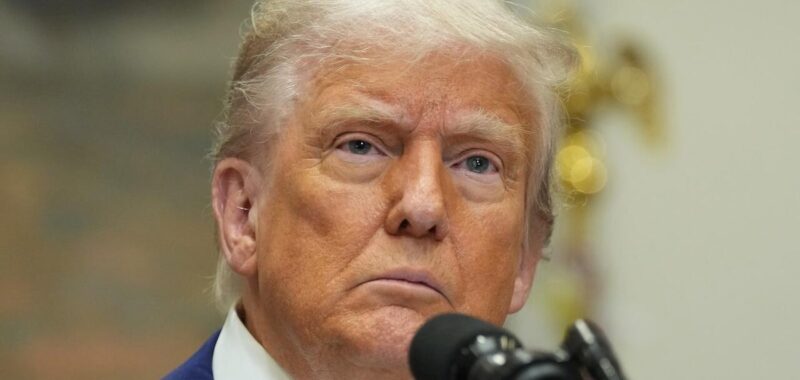President Trump on Friday said his administration will send letters that inform other nations of the tariff rates the U.S. will impose on imports, adding that “it’s not possible to meet the number of people that want to see us.”
“[W]e have, at the same time, 150 countries that want to make a deal, but you’re not able to see that many countries,” Mr. Trump said during a Friday business roundtable between the U.S. and United Arab Emirates.
Mr. Trump said the letters will be sent by Treasury Secretary Scott Bessent and Commerce Secretary Howard Lutnick, adding that the rates “would be very fair, but we’ll be telling people what they’ll be paying to do business in the United States.”
The Trump administration has been negotiating with the U.K., China and other major trading partners in recent weeks over his April 2 tariffs, which set historically high duties on imported goods for almost every country on the globe.
U.S. companies such as Walmart and Target, along with many small businesses, pay the tariffs on imports — not the nations that produce the goods — and those companies typically pass off the costs to American consumers in the form of higher prices.
“We expect the U.S.’s effective tariff rate to increase by about 13 [percentage points] this year to its highest level since the 1930s,” Goldman Sachs analysts said in a May 14 research note. “While the ultimate level and composition of tariffs remains uncertain, they will probably remain elevated for the foreseeable future.”
Retailers warn of price hikes
Walmart on Thursday warned that it will start raising prices later this month due to the impact of U.S. tariffs. While Mr. Trump on Monday announced he would ease tariffs on Chinese imports for 90 days — taking the rate down from 145% to about 30% — it represents an increased business expense for American companies.
“We can control what we can control,” Walmart CEO Doug McMillon said on the company’s first-quarter earnings call yesterday. “Even at the reduced levels, the higher tariffs will result in higher prices,” he added.
Mr. Trump has said he’s rolling out the tariffs for a variety of reasons, including to spur domestic and foreign businesses to shift their manufacturing plants to the U.S. and revive American manufacturing jobs. On Friday, Mr. Trump touted announcements from some companies that have said they plan to invest in the U.S.
“[W]e’re probably in the $12 to $13 trillion range of investments,” Mr. Trump said. “I think we’re heading toward the $12 to $13 trillion between projects already announced, mostly announced, but some are going to be announced very shortly and literally, very shortly.”
Still, many trade experts are skeptical that the threat of higher tariffs and political pressure from the White House are enough to spark a major revival in U.S. manufacturing. Businesses typically decide to build new factories based on a number of other factors beyond tariffs, including labor, energy and transportation costs, tax rates, and the regulatory environment.

